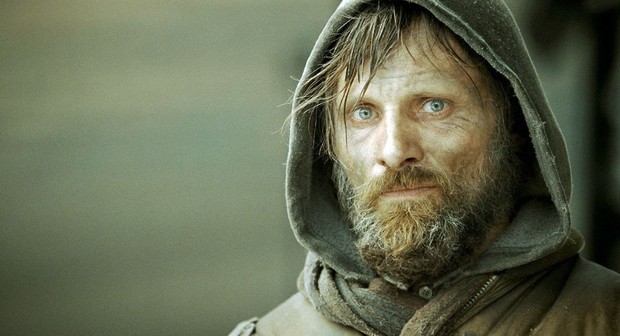In a dead world, he taught his son how to live.
Bleak, haunting, and achingly intimate, The Road (2009) is a post-apocalyptic elegy wrapped in silence, ash, and the fragile heartbeat of a father’s love. Based on Cormac McCarthy’s Pulitzer Prize-winning novel and directed by John Hillcoat, the film strips the end of the world of spectacle, leaving behind only raw survival—and the bond that refuses to break.

The story follows a nameless man (Viggo Mortensen) and his young son (Kodi Smit-McPhee) as they journey through a burned and barren America, years after an unspecified cataclysm has turned civilization into ruin. Forests are dead. Cities are skeletal. Food is scarce. And most survivors have turned into predators.
Armed with a pistol, a shopping cart, and a mantra—“We’re the good guys”—the man clings to a sense of morality in a world where decency has all but disappeared. As he grows sicker and weaker, he teaches his son how to survive, but also how to carry the fire—the spark of compassion, of memory, of something still worth believing in.

The cinematography is color-drained, almost monochrome, matching the desolation of the landscape. But the film’s emotional palette is full—grief, fear, love, tenderness, and the quiet horror of having to choose between survival and humanity. There are no zombies, no monstrous creatures—only the brutal realism of what humans might become when stripped of hope.
The Road is not a film about the end. It’s about what remains. A child’s eyes. A father’s final breath. A world too far gone—and a soul that still whispers: Don’t give up. Not yet.


-1749264414-q80.webp)
-1751338972-q80.webp)